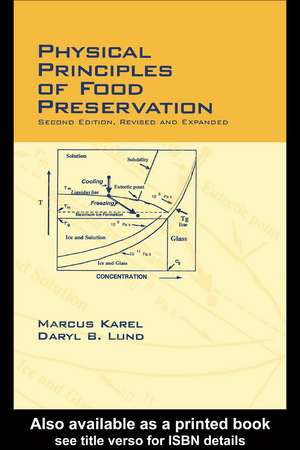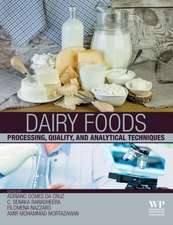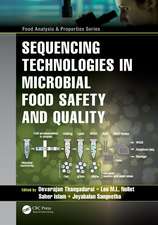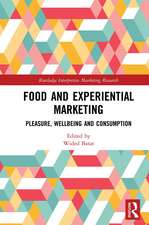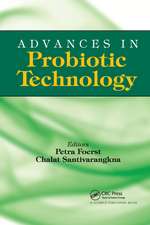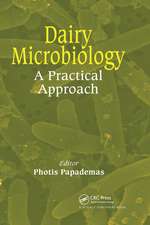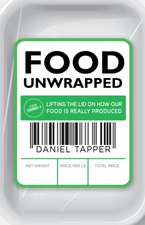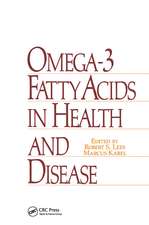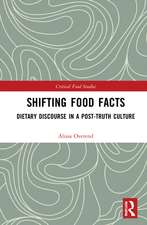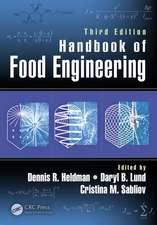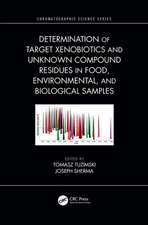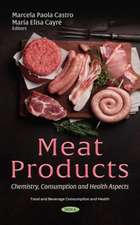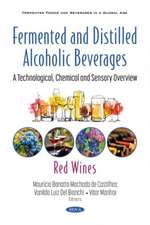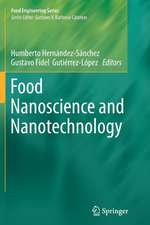Physical Principles of Food Preservation: Revised and Expanded
Autor Marcus Karel, Daryl Lunden Limba Engleză Hardback – 20 iun 2003
Preț: 2093.02 lei
Preț vechi: 2552.46 lei
-18% Nou
Puncte Express: 3140
Preț estimativ în valută:
400.55€ • 416.64$ • 330.68£
400.55€ • 416.64$ • 330.68£
Carte tipărită la comandă
Livrare economică 15-29 aprilie
Preluare comenzi: 021 569.72.76
Specificații
ISBN-13: 9780824740634
ISBN-10: 0824740637
Pagini: 636
Dimensiuni: 152 x 229 x 34 mm
Greutate: 1.34 kg
Ediția:Revizuită
Editura: CRC Press
Colecția CRC Press
Locul publicării:Boca Raton, United States
ISBN-10: 0824740637
Pagini: 636
Dimensiuni: 152 x 229 x 34 mm
Greutate: 1.34 kg
Ediția:Revizuită
Editura: CRC Press
Colecția CRC Press
Locul publicării:Boca Raton, United States
Public țintă
ProfessionalCuprins
Foreword, Preface to the Second Edition, Preface to the First Edition, PART I. PRINCIPLES, 1. Thermodynamics, 2. Reaction Kinetics, 3. Heat Transfer in Food, 4. Mass Transfer in Food Preservation Processes, 5. Water Activity and Food Preservation, PART II. PRESERVATION PROCESSES, 6. Heat Processing, 7. Storage at Chilling Temperatures, 8. Freezing, 9. Concentration, 10. Dehydration, 11. Nonthermal Methods, 12. Protective Packaging, Index
Notă biografică
Marcus Karel is Emeritus State of New Jersey Professor of Food Science, Rutgers University, New Jersey, and Professor Emeritus of Chemical Engineering, Massachusetts Institute of Technology, Cambridge. Dr. Karel is the author or coauthor of three books, eight patents, and over 300 research and review papers in the areas of food engineering and the physical chemistry of foods. The recipient of the Cruess Award, the Appert Medal of the Institute of Food Technologists, and the Food Engineering Award and Gold Medal of the American Society of Agricultural Engineers, he received the A.B. degree in biology from Boston University, Massachusetts, and the Ph.D. degree in food technology from the Massachusetts Institute of Technology, Cambridge. Dr. Karel also received Honorary Doctorates from the Israel Institute of Technology, Technion, the University of Burgundy in Dijon, France, and the University of Helsinki, Finland. Daryl B. Lund is Executive Director, North Central Association of Agricultural Experiment Station Directors, and Professor of Food Engineering, Department of Food Science, University of Wisconsin-Madison. The author or coauthor of numerous professional publications including the Handbook of Food Engineering (Marcel Dekker, Inc.), he is the recipient ofIFT's International Award and the Carl R. Fellers Award. A Fellow of the Institute of Food Technologists (IFT) and the Institute of Food Science and Technology (UK), and a Charter Fellow of the Institute of Food Science and Technology, Professor Lund received the B.S. degree in mathematics and the Ph.D. degree in food science from the University of Wisconsin-Madison.
Descriere
This reference examines the properties, conditions, and theoretical principles governing the safety and efficacy of various food preservation, storage, and packaging techniques. The book analyzes methods to predict and optimize the nutrition, texture, and quality of food compounds while reducing operating cost and waste. The Second Edition contains new chapters and discussions on non-thermal processes; the mechanisms of heat transfer, including conduction, convection, radiation, and dielectric and microwave heating; the kinetic parameters of food process operations; freezing technology, using illustrative examples; recent breakthroughs in cryochemistry and cryobiology, and more.
